They’re here to hear you say “I do.”
What’s the most important part of your wedding ceremony? As a musician, I’d love to tell you I am – but it’d be a lie. Your wedding hinges on one relationship. That relationship is summed up in two vows. Those vows are summed up in two words.
What happens if your guests can’t hear you say those words? You’ve got a problem.
Here’s how to tell if your ceremony should be amplified – and how to make sure that it gets done right.
3 signs you need a system
1. Your guest count is 100 or more. Expecting 40 or 50 guests at your wedding? It’s charming to keep things organic and intimate – no microphones, no electricity. But the larger your crowd gets, the harder it gets for the folks in the back to hear what’s going on. My rule of thumb is that 100 guests –roughly enough to fill two school buses – is the point at which you’re going to regret not having amplification. In fact, I “strongly recommend” it for as few as 75 guests.
2. Your aisle is 8 rows long or longer. Most church pews are 3’ from pew to pew – and even if your guests are sitting in folding chairs, they’ll take up about the same amount of space. So 8 rows puts your back row of guests 24’ from the front. That’s too far to hear well.
To see what I mean, find a friend – and a parking lot. Parking spaces are 8’ wide on average, so an 8-row wedding aisle is 3 parking spaces long. Add a 4th space for the distance from your officiant to the front row. Can your friend hear you talking from 4 parking spaces away, or do you have to shout?
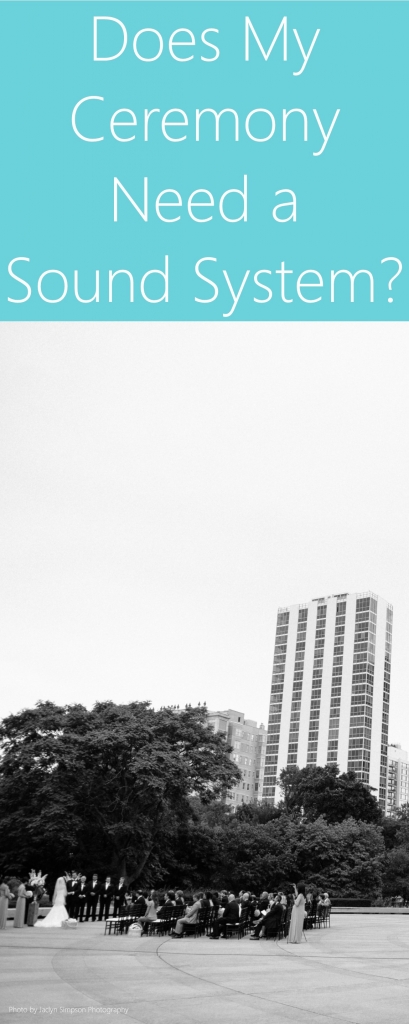 3. Your ceremony is outdoors. Outdoor weddings are beautiful – but they’re twice as hard to hear as indoor weddings. Inside, sound reflects and bounces back. Outside, it disappears into the wind.
3. Your ceremony is outdoors. Outdoor weddings are beautiful – but they’re twice as hard to hear as indoor weddings. Inside, sound reflects and bounces back. Outside, it disappears into the wind.
Speaking of wind, you’ll also have the sounds of nature to compete with at your outdoor ceremony – and, if your location is near a thoroughfare, traffic as well.
To hear the difference being outside makes, try the experiment mentioned above: Talk to a friend while standing at least 4 parking spaces apart. Try it first in an indoor parking garage – then outdoors at the nearest Wal Mart. What’s easier?
3 things a good system needs
1. Two wireless microphones. At Backthird Entertainment, we bring a wireless clip-on mic for your officiant and a wireless handheld mic for any other speakers. This second mic goes on a stand, where it can be used for special readings throughout the ceremony.
What about your vows? At most weddings, the mic clipped to your officiant will pick up the wedding couple too – without you having wear a wire of your own.
2. Speakers and a mixer. Since speakers don’t look great in wedding photos, we like to set them up behind your guests when possible.
3. A sound engineer. Some musicians try to run sound while they play music, while other folks will rent you equipment and let you fend for yourself. But it’s best to have a dedicated engineer, especially if your wedding is outside. A gust of wind can make things suddenly noisy, and every person reading will need the mic set at a different level. Let a pro deal with these issues who’s not also juggling other responsibilities.
Someone else’s problem
Over the years, I’ve learned that just because you love someone and want to get married – it doesn’t mean you’re a sound expert. So the Backthird philosophy is this: We figure out what you need before we even meet with you, and we make sure it’s at the wedding.
If you need a sound system and engineer, we’ll include one in the plans we put together when you first meet with us. If you don’t, we won’t. And if we’re not sure, we’ll ask you – or we’ll research your venue and find out. You worry about saying the vows. We’ll worry about amplifying them.
If that sounds like the right approach – and your wedding’s in the Chicago area – drop us a line. We’d love to make a plan that works for you.

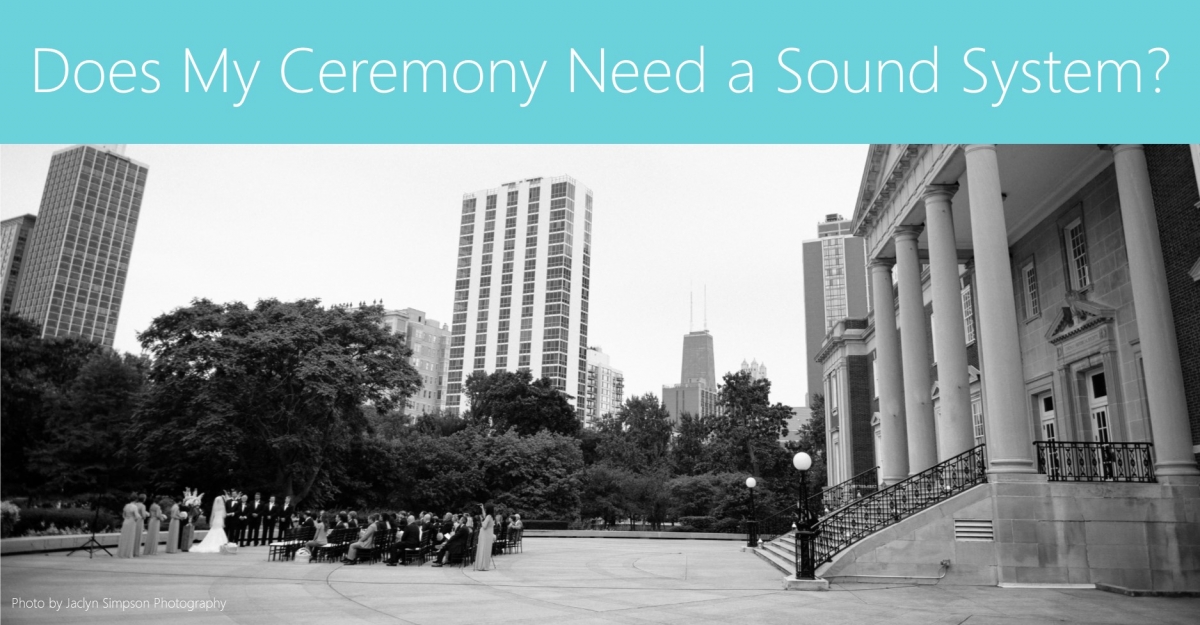
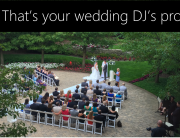


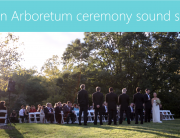
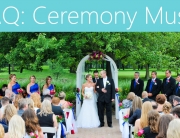
Nailed it!
Great information! Thanks. Wish you were in the St. Louis area.